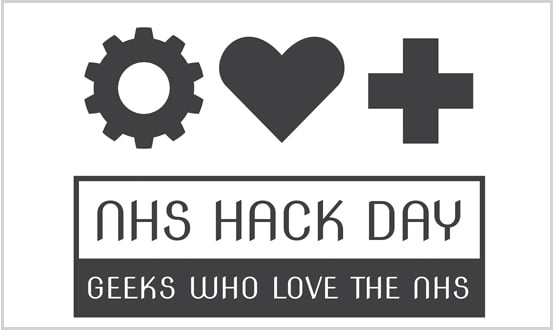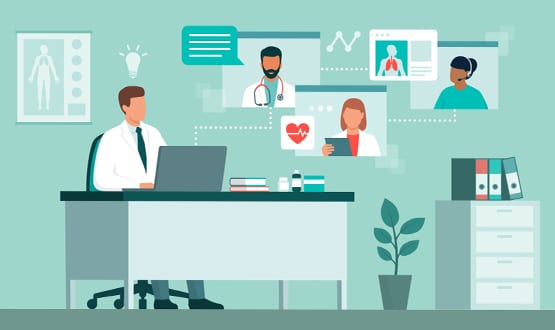Seven for ‘13
- 20 December 2012

The past year has been a year of transition for UK health IT, since the drawing to a close of the National Programme for IT in the NHS has coincided with major changes to the structure of the health service, and significant financial pressure.
This has resulted in a hiatus in some areas. Overall, however, the lifting of the dead hand of the NPfIT and the shift to local choice and decision making has been welcomed across the informatics community – even if the reorganisation and financial pressure mean that it is not always easy for local organisation to respond as quickly and positively as they need to.
Alongside these developments, a number of positive themes have emerged. These include:
• Hackdays everywhere!
This has been the year that hackdays have come to the NHS, with events including the DigihealthHack in Leeds, two NHS Hack Days in London and Liverpool, Hack4Health, and Digidoc to name just a few. The Health and Social Care Information Centre even ran a hack week as part of its procurement of an open data platform.
These events bring developers, clinicians and other health and care professional together to solve real, frontline problems. They create great energy and enthusiasm, some useful prototypes and a great fun; but the real challenge is taking their output to create sustainable products and services and deploying them at scale.
• Code writing medics!
Part of the hackday movement has been an effort to get doctors to learn to write computer software (code). This was one of the main features of Digidoc, which held its first event earlier this month, and will be promoted by Tim Kelsey, the new national director of patients and information, through his Code4Health initiative.
Teaching those clinicians and other healthcare professionals who want to code is a great idea. It gives them the skills to solve small problems themselves and helps create that vital engagement between front line staff and developers that is so important – but has been so lacking – in much NHS IT activity.
However, addressing the big challenges requires professional software engineering and computer science skills that even very clever docs can’t learn in a few weekends. The trick is to get these two groups of professionals working together with an understanding of each other’s domains. Hackdays and initiatives like Code4Health are Digidoc are helping make this happen.
• Apps for (almost) everything
We have seen rapidly growing and vibrant community around health and care apps, spurred initially by the mapsandapps competition that was run by the Department of Health and then picked up by HANDI Health (video). In just a few months, HANDI has built a network of more than 700 people and organisations and created five regional clusters, with three more expected in early 2013.
HANDI’s network includes clinicians and other health and care professional, academics, developers, financiers, patients and carers. HANDI is not just about mobile apps but about any agile tools that can support health and care. It has a mission to take the exciting work coming from the developer community and to turn it into sustainable products and services that can be successfully deployed at scale.
• Open data
Open data has been another major theme of 2012, with government in general and the NHS in particular opening-up data. This means making it freely available in a computable form and providing support and encouragement to a whole range of individuals and organisations to use it for a range innovative services. It also means driving up quality through transparency.
This new approach is seen as a threat by some who feel their data may be misinterpreted to show them in a bad light (sadly, in some cases, this won’t require misinterpretation). But, increasingly, the value of open data and transparency is being recognised and we are beginning to understand how we can facilitate a proper understanding of what it tells us.
• Open systems
Open systems take us beyond open data, which is primarily focussed on analytics and data visualisation, in to the area of system interoperability. By opening interfaces to third parties (APIs) an opportunity is created for them to produce new and innovative products and services, and to facilitate the sharing of data and the management of workflows across care pathways.
Notable initiatives in this area include the plans for the GP Systems of Choice framework replacement, which will require GP suppliers to open up their APIs and NHS Commissioning Board’s plans for a patient portal / platform that will expose APIs to a range of NHS data and services. Hopefully, this will encourage further innovation by the developer community.
• Open source
The past year has also been the year in which open source has started to come of age in the NHS, with innovative companies showing how they can build service wrappers around open source products that make then suitable for delivery in the NHS at scale. We still have a way to go with getting NHS procurement at the level of local NHS organisation to take advantage of open source, but there are plenty of interesting developments out there.
These include: the Leeds open source portal development and the OpenEyes project at Moorfields Hospital, which are now working together; the Tactix 4 observations system, WardWare, the NHS VistA project to bring the US Veteran’s Administration software to the UK, and, most recently, OpenGPSoC. Many of these projects take advantage of other open assets, including OpenEHR, OpenClinical, OpenERP and a number of open source enterprise services buses.
Open source is not free and not necessarily cheaper than closed source approaches; but it does guarantee value and enable the intellectual capital of the whole community to be deployed to solve some of the difficult problems that are too big for individual companies to sole alone.
• Patients rule, OK!
Putting patients at the centre of healthcare has long been a policy focus for the NHS, and this desirable move is finally being reflected in the development of health sector IT. The government’s commitment to give patients online access to their GP record and a range of associated digital services has been restated in the NHS Mandate and the planning guidance issued by the NHS Commissioning Board in December.
Unfortunately, enthusiasm among many GPs, particularly to the core record access element, is low. There are some significant concerns about the impact of record access on patients and the doctor patient relationship. There are also some tricky information governance issues and real concerns about the workload implications for GP practices, which are already under great pressure as a result of the NHS reforms.
Despite this, I’m convinced that the introduction of digital service will in time help control workload and improve patient engagement in their own health and care. Work-around GP record access is the most significant development, but the growing value of personal health records in specialist areas is showing what can be achieved. Important examples where there has been progress in 2012 include Renal Patient View, Patients Know Best, the My Health Locker development at South London and Maudsley NHS Foundation Trust, and the My Health Record project at Southampton NHS Foundation Trust.
About the author: Ewan Davis has worked in healthcare IT since 1981. He founded AAH Meditel – one of the larger GP systems suppliers – is treasurer of BCS Health and a member and past chair of both the BCS Primary Health Care Specialist Group and the Intellect Healthcare Group.
Since 1999, Ewan has worked as an independent consultant with clients from government, industry and the NHS. He is also involved with the HandiHealth network, which is looking to develop lightweight healthcare apps for patients, carers and health professionals.




